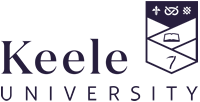Most stars in our galaxy move in more or less orderly orbits, but in recent decades astronomers have identified some stars that are moving considerably faster than expected; these are runaway stars. These stars are believed to have been ejected from dense star clusters by energetic processes such as the explosion of the star’s binary companion in a supernova, or the interaction of close binary systems. Both of these processes can propel stars out of clusters at immense speeds, leaving their parental cluster far behind. With state-of-the-art data from the Gaia satellite, astronomers can detect these runaway stars and identify the clusters they have been ejected from. This can provide information on the production processes that produce such stars, the dynamical conditions within such clusters, and can also provide valuable constraints on the age of the cluster based on the ejection time. We have identified a large sample of candidate young runaway stars that will soon be observed by the new WEAVE spectroscopic survey of young stars. The student will utilize this spectroscopy to confirm the youth of these runaway stars and measure their 3D kinematics. This will allow the birth cluster of each star to be identified and provide constraints on the formation and evolution of that cluster. This project will exploit state-of-the-art Gaia data and spectroscopy from the next-generation WEAVE instrument. The project is well suited to a student with an interest in big data, star clusters and star formation.
Candidate profile
Essential
Qualifications, Experience and Skills
● Candidates must hold at least an upper-2nd class Bachelors degree or an appropriate Masters qualification in a physics related subject or its equivalent.
Desirable
● First class Bachelor or 2:1 Masters degree in a relevant discipline
● Evidence of ability to undertake research work in the area of astrophysics or related area
Attitude and Personality
● Ability and willingness to undertake advanced research study at PhD level
● Excellent communication, interpersonal and organizational skills
● Willingness to learn new theoretical and practical science skills and commitment to ongoing personal training
● Ability to work both independently and as part of a team
● Evidence of organizational and time management skills
● Skills in planning research work
Studentship available from September 23 (flexible).
Contact the Project Coordinator, Dr Nick Wright ([Email Address Removed]) for information on our PhD programme, or for this studentship.
To be considered for the studentship please submit a formal application to
https://www.keele.ac.uk/study/postgraduateresearch/researchareas/astrophysicsandphysics/
Please state FNS_NW November 2022 on your application and the Project title.

 Continue with Facebook
Continue with Facebook



